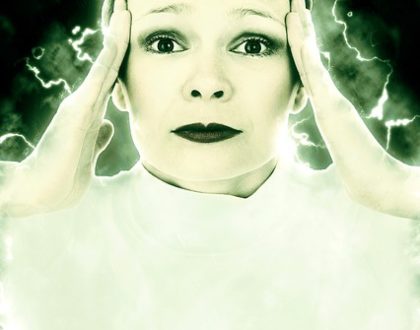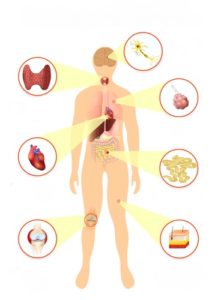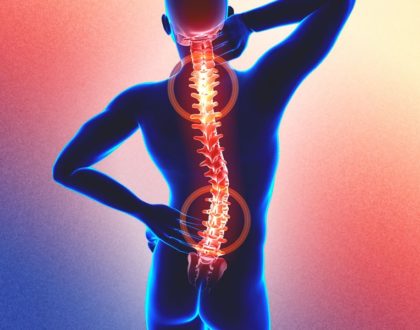Unlocking Relief: How Acupuncture Can Be Your Ally in Managing Chronic Conditions such as Pain, Anxiety, Low Energy, Insomnia, and so much more

Are you seeking a natural and holistic approach
to manage the challenges of chronic conditions? Perhaps you’ve explored various avenues and are looking for a therapy that addresses the root cause while promoting overall well-being. If so, you’re in the right place. In this blog post, we’ll delve into the fascinating world of acupuncture and explore how this ancient practice can be a powerful ally in your journey towards greater comfort and balance.
For centuries, Traditional Chinese Medicine (TCM) has offered a unique perspective on health and healing. At its core lies the concept of Qi (pronounced “chee”), the vital energy that flows through specific pathways in the body called meridians. When this flow is harmonious and balanced, we experience optimal health. However, disruptions in Qi can manifest as pain, discomfort, and various health conditions, which become chronic if left untreated.
Acupuncture, a cornerstone of TCM, involves the gentle insertion of ultra-thin, sterile needles into specific acupuncture points along these meridians. These points are carefully chosen based on your individual presentation and TCM diagnosis, aiming to stimulate the body’s natural healing abilities and restore the smooth flow of Qi.
How Acupuncture Can Help with Chronic Conditions:
The exact mechanisms of how acupuncture works are still being explored by modern science. Research and centuries of clinical experience suggest several ways acupuncture can provide relief and support for Chronic Conditions:
- Targeting the Root Cause: Unlike approaches that solely focus on symptom management, acupuncture seeks to identify and address the underlying imbalances contributing to condition from a TCM perspective. This may involve addressing patterns of stagnation, deficiency, excess, or imbalance within specific organ systems and meridians.
- Pain Management: For conditions involving pain, such as chronic back pain, neck pain, or arthritis, acupuncture has demonstrated significant analgesic effects. By stimulating nerve fibers, it can trigger the release of endorphins, the body’s natural pain relievers, and influence the way pain signals are transmitted to the brain.
- Reducing Inflammation: Inflammation often plays a significant role in many health conditions. Studies suggest that acupuncture can help modulate the inflammatory response by influencing the production of cytokines and other inflammatory markers. This can lead to a reduction in swelling, redness, and pain associated with back pain, headaches, bowel or stomach issues, and auto-immune disorders.
- Stress and Anxiety Reduction: The mind-body connection is integral to TCM. Stress and anxiety can exacerbate many health issues. Acupuncture has a calming effect on the nervous system, promoting relaxation and reducing the body’s stress response. By balancing the autonomic nervous system, acupuncture can help alleviate anxiety and improve overall well-being, which can indirectly benefit many conditions including pain.
- Improving Circulation: Acupuncture can help to improve blood flow and circulation throughout the body. This enhanced circulation can deliver vital nutrients and oxygen to tissues, promoting healing and reducing stagnation that may contribute to discomfort.
- Restoring Balance: Ultimately, acupuncture aims to restore the body’s natural equilibrium. By addressing the specific TCM patterns associated with your dis-harmony, acupuncture can help to re-establish the harmonious flow of Qi, leading to improved function and a greater sense of well-being.
What to Expect During an Acupuncture Session:
Your first acupuncture session will typically involve a comprehensive consultation. Your acupuncturist will ask detailed questions about your health history, lifestyle, and the specific symptoms you are experiencing. They may also examine your tongue and take your pulse, which are important diagnostic tools in TCM.
During the treatment, you will lie comfortably while the acupuncturist gently inserts the hair-thin needles into carefully selected points. Most people report feeling little to no discomfort upon insertion. Once the needles are in place, you may experience sensations such as mild tingling, warmth, or a dull ache around the points. These sensations are generally considered a sign that the Qi is being stimulated. You will typically rest with the needles in place for 20-30 minutes, allowing the treatment to take effect. A second set may follow.
Finding the Right Acupuncturist:
When seeking acupuncture for any condition, it’s essential to find a qualified and licensed acupuncturist with experience in treating your specific concerns. Look for practitioners who are board-certified and have a thorough understanding of both TCM principles and the complexities of disease.
Taking the Next Step:
If you’re looking for a natural and holistic approach to support your well-being while managing your health, acupuncture may offer a valuable path forward. By addressing the underlying imbalances and promoting the body’s innate healing abilities, acupuncture can be a powerful tool in your journey towards greater comfort, balance, and improved quality of life.
Are you curious to learn more about how acupuncture can help with migraines, neck, knee or back pain, auto-immune disorder, digestive issues or insomnia? Contact us today to schedule a consultation and discover the potential benefits it offers.
Recommended Posts

Acupuncture for Stress and Anxiety
March 8, 2025

Menopause and the magic of acupuncture
January 31, 2025


